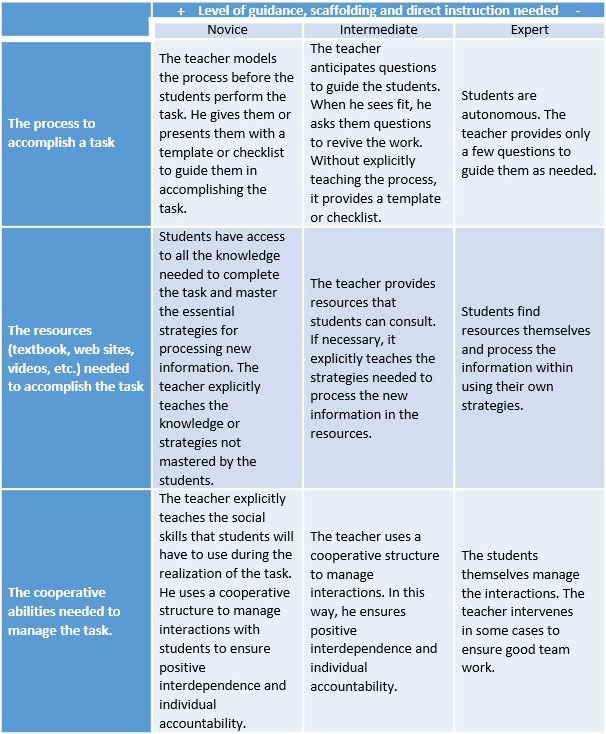During my first semester in the active learning classroom, I realised how difficult it can be to implement successful and effective activities. As a CEGEP teacher, I often assume that students master the task, the strategies needed to process information or the cooperative abilities to manage the interactions. Well, think again!
Students may need modelling, guidance and scaffolding when faced with problem-centered activities (for example: problem-based learning, inquiry-based learning, project-based learning, case-based learning, etc.). Students may even be at different levels (novice, intermediate, expert) in the three different areas (see table below).

When given a task, students might master high-level cognitive strategies like problem-solving while others might struggle. Giving a problem and “hope for the best” might not do the job. The teacher may need to explicitly model the process. Sometimes, students need to search for information and process it. A teacher need to make sure students master the strategies to search for information and to critically process it. Same thing for the cooperative abilities; many students never had the chance to learn how to interact with their peers. That’s what cooperative structures are made for!
The level of guidance and scaffolding depends on the student’s prior knowledge. So, don’t let your students down! It is important to assess the abilities of the students or, at least, start with a task and assume a novice level. As the semester progresses, the teacher can then adapt the activities to the level of the students. She or he may even form teams with students having different levels in the different areas so the experts can teach the novices. Nevertheless, anytime a teacher senses the students struggling with a certain aspect of a task, she or he should explicitly teach it. Only when students master them you can assume they can do this task in an autonomous way.
Reference:
Normand, L. « L’apprentissage actif, une question de risques…calculés », Pédagogie collégiale, 31(1), 5-12.




Great blog post Louis! It’s given me some interesting ideas to consider.